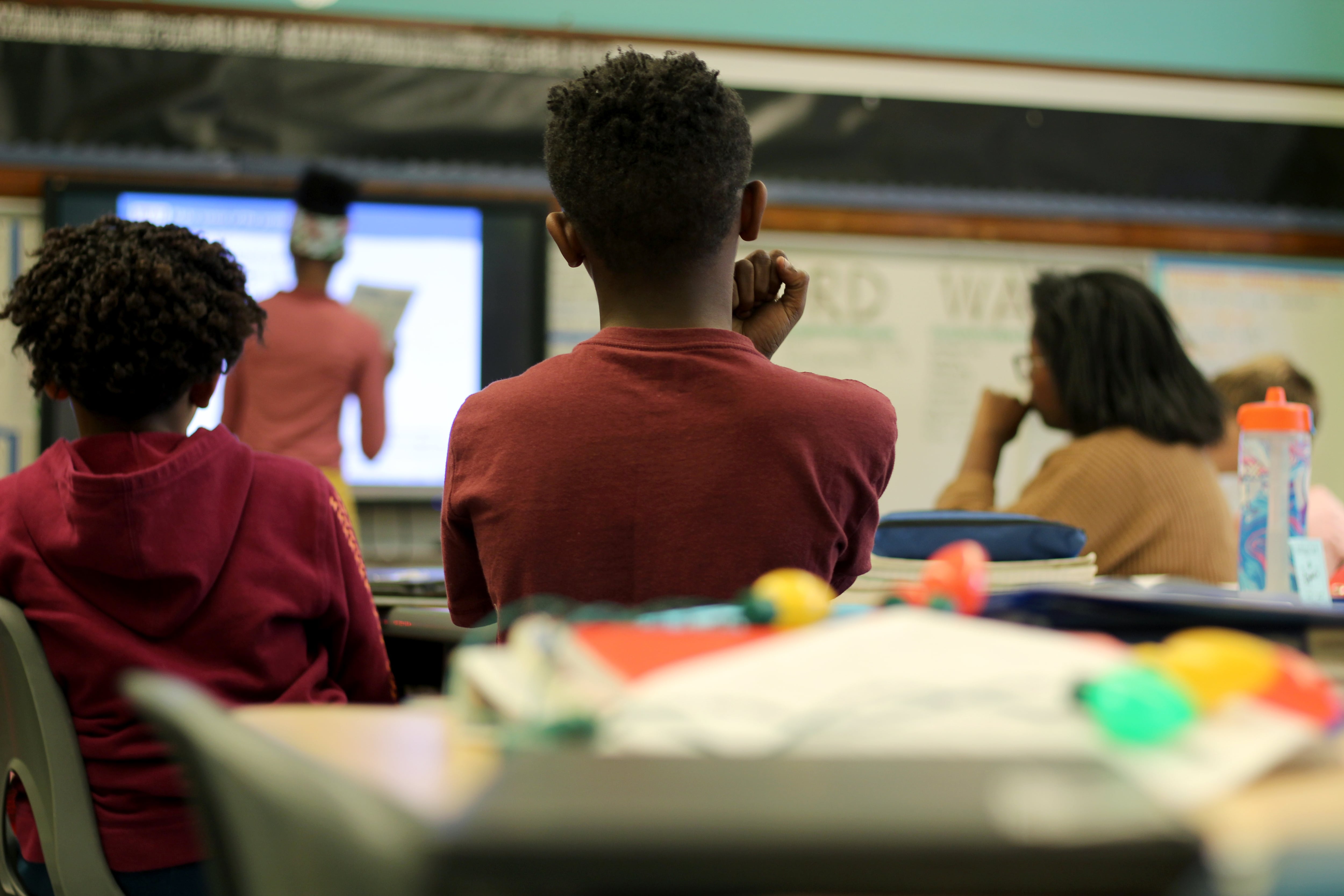Sign up for Chalkbeat Chicago’s free daily newsletter to keep up with the latest news on Chicago Public Schools.
Months after the new Chicago Board of Education was sworn in, some advocates are pushing the board to launch a state-mandated Black Student Achievement Committee.
The committee in question is required under the state law that defines Chicago’s new elected school board. But Chicago Public Schools came under federal scrutiny in February after releasing its long-awaited Black Student Success Plan.
Multiple board members said Wednesday they’re working to establish the committee, but did not mention the federal complaint. Board member Jitu Brown said he’s one of the people pushing “to make sure it happens.”
“Please hold us accountable for the Black Student Success Committee, and just know that we are moving diligently to make sure that we have our committee up and running,” Brown said. “We’ll be reaching out to people in the community to serve on the committee.”
State law requires the committee to focus on closing academic disparities and improving the school experience for the district’s Black students, who historically have been less likely to pass standardized reading and math tests compared to their peers and have also been disproportionately subject to disciplinary action.
The requirement to create the committee looms as the district is under federal scrutiny for more than just the Black Student Success Plan. Chicago is one of multiple school systems across the country that the Trump administration has targeted as it attempts to crack down on diversity, equity, and inclusion, or DEI, efforts, with the threat of holding back federal funding. CPS, the state of Illinois, and a suburban district are also facing a Title IX investigation into policies around supporting transgender and nonbinary students. Last week, Mayor Brandon Johnson said his administration would sue the federal government if it started to withhold federal education funding over DEI.
During a board meeting on Wednesday, some advocates pointed to that pressure as a reason to swiftly establish the committee.
“We need action to establish the Black Student Achievement Committee now, especially in the national climate where out-of-state threats and executive orders are attacking DEI work and threatening federal funding,” Nakasha Barlow, a senior organizer with the Chicago branch of Educators For Excellence, a teacher advocacy group, told board members. “It is even more critical that CPS double down on protecting black student success.”
The Black Student Success Plan, which the district launched in February, promises to make a slew of changes, including increasing the number of Black teachers, curbing suspensions for Black students, and creating a more culturally responsive curriculum to “combat anti-Blackness.” The day after the plan was launched, the conservative advocacy group Parents Defending Education, which has challenged other race-based initiatives, filed a federal complaint alleging that the initiative violated the U.S. Constitution and cited a federal letter that warned districts to halt race-based initiatives.
Reema Amin is a reporter covering Chicago Public Schools. Contact Reema at ramin@chalkbeat.org.






